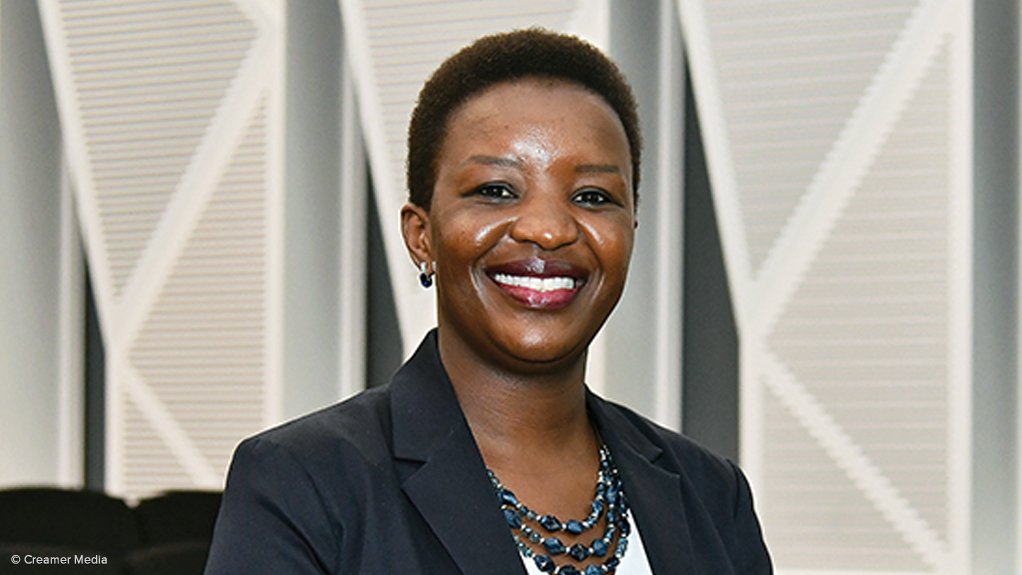In her latest weekly newsletter, Business Leadership South Africa (BLSA) CEO Busi Mavuso questions why government could implement “urgent” policies for the Covid-19 crisis, but not for energy or spectrum allocation, which are also long-standing urgent issues.
“The State acted fast [at the start of Covid-19], pulled together experts and worked hard to analyse the best options and then implement them to slow the spread of the disease. We had a glimpse of what is possible.
“The problem is that, in other areas, “urgent” seems to mean little. We sit now with load-shedding because we have been slow in delivering energy policies and procurement that has been necessary for a long time,” she states.
It has been almost a year since government published a request for information on “emergency” power supply options.
At least a bidding process has begun to procure 2 000 MW of new production, but with the bidding process closing late in November, and suppliers needing to achieve financial close and build projects, the first contribution to the grid from these projects will only realise around mid-2022.
Mavuso continues that, separately, Eskom has been procuring about 200 MW through its urgent short-term power purchase programme that was supposed to ensure additional electricity for the grid from December.
That process has been delayed several times, partly owing to Covid-19, and new electricity for the grid can only be expected from the end of February next year.
Mavuso says the load-shedding is rocking the country just as the economy started attempting to get back on its feet after the worst economic shock in a decade.
“This attitude to urgency is not restricted to energy. We have been waiting for the auction of spectrum for increased broadband since 2007 – when the policy directive was first issued. The lack of capacity of the cellphone companies is throttling the economy and forcing high data prices. Yet last week we heard that the auction has been delayed yet again from the end of this month to March next year,” she notes.
Mavuso states that many reasons give rise to delays, but in almost all cases, South Africa seems to lack the “make it happen” attitude that we saw at the beginning of the Covid-19 battle.
“Of course, government did not get everything right in the policy steps then, but at least they understood and behaved with urgency. The benefits of those early measures are being felt now with the infection rate having peaked [ahead of] expectations, enabling most of the economy to resume activity with the move to a Level 2 lockdown.
“Now, though, the lack of a demonstrable appreciation of urgency is jarring.”
Mavuso adds that the lack of urgency arises, in part, from the independent roles that different parties must play given the complex regulatory processes in energy and spectrum allocations.
“We want independent regulators because we believe it is in the public interest. But we should expect that those regulators will prioritise the public interest, thereby delivering policy outcomes fast. They should be enabled to do so from the political level with the right legislative support.
“As business, we have always stood ready to offer support to help drive urgent implementation. Business generally comes from a ‘make it happen’ culture in which urgency is often embraced to take advantage of opportunities and deliver what clients need,” she explains.
The voluntary effort put in by Business for South Africa and initiatives such as the Solidarity Fund demonstrate this.
Mavuso believes South Africa does have people with the technical skills to work on projects and an appreciation that the urgency of the situation implies there can be no excuses.
“We are ready and willing to engage with other social partners to deliver on urgent priorities.
“Let us collectively find a new appreciation for ‘urgent’ priorities and come together with the energy and drive to turn them into reality.”
EMAIL THIS ARTICLE SAVE THIS ARTICLE ARTICLE ENQUIRY
To subscribe email subscriptions@creamermedia.co.za or click here
To advertise email advertising@creamermedia.co.za or click here











